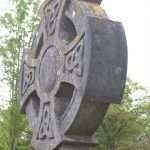Sermon for Sunday, 18th January 2015 (Epiphany 2/Ordinary 2)
“Come and see.” John 1:46
In the brief conversation between Philip and Nathanael there is much about what it means to be a follower of Jesus.
“Philip found Nathanael,” Saint John tells us. In a world where individualism is dominant, Christians are called to be people who care about community. Spirituality in our own times is about individual seeking, about what works for individuals, about individuals thinking and living as they see fit. Evangelism, trying to share the good news of Jesus is something frowned upon, even in many of the churches. It is seen as assuming one’s views are superior to those of the person to whom one is talking.
Philip avoids the trap of individualism, he avoids the attitude common in our own times that people should be left to find their own way. Philip believes that if he has found something that is life transforming, then he has a duty to share what he has learned, not to try to impose his beliefs, but to talk graciously about what he believes. Do we as Christians believe that our obligation towards our community is to speak of what we believe, or is our faith just something that is individual?
“We have found him”, Philip tells Nathanael. Philip is an optimist. In a world filled with pessimism, Christians are to be an optimistic people. How often, even in the churches, is the language usually of gloom and despondency? How often do Christians expect to be a disappearing group? How readily cynics grab any opportunity to find fault with anyone who speaks in an optimistic way.
Philip could have been a pessimist. There was plenty about which to be pessimistic in First Century Palestine, plenty about which to be gloomy, but if Jesus is really the one spoken about by Moses and the prophets, then there can only be an overwhelming optimism. If we as Christians believe in Jesus as the Resurrection and the Life, then we should be a people full of optimism. When we read of Jesus, are we optimistic?
Nathanael said to Philip, “Can anything good come out of Nazareth?”Nathanael speaks like a man with a closed mind, determined that people will correspond to what he believes about them, yet being Christian people is about being an open people, open to the grace of God working in our lives and open to greeting people around us as brothers and sisters. It is much easier to be closed in our attitudes, to stick to what we have always thought, to decide that the world is as we think it is and that there is no reason for us to be challenged, no reason for us to be changed.
Philip could easily have shared Nathanael’s attitudes, it would have been much easier just to have carried on as before rather than to accept the challenges that came to him. Philip is open to Jesus and we are challenged to be open, to accept that God may be speaking to us, even to us. When we are open, it is amazing what things can happen.
Philip said to Nathanael, “Come and see.” The easy response for Philip would have been the worldly response, “that’s fine. Don’t bother”. It would have been easy for Philip to have turned his back and walked away, left Nathanael to his own thoughts and his own ways. Wouldn’t that have been our response? Wouldn’t we have taken the worldly option and decided it didn’t suit us to try to argue?
Philip instead chooses a spiritual response, “come and see”, he says to Nathanael. He is not telling Nathanael what to think, he is not saying that he must reach the same conclusions. Instead, he graciously invites Nathanael to come and find out for himself what it is that Jesus has to offer. Can we manage such a response to people in our own time, not to say they must think like us, but to invite them to think about Jesus for themselves?
Community or individualism? Optimism or pessimism? Openness or closed minds? Spiritual attitudes or worldliness? The few words we read exchanged between Philip and Nathanael can teach us much about what it should mean for us to be like those first disciples, what it should mean for us to follow Jesus.


Comments
Sermon for Sunday, 18th January 2015 (Epiphany 2/Ordinary 2) — No Comments
HTML tags allowed in your comment: <a href="" title=""> <abbr title=""> <acronym title=""> <b> <blockquote cite=""> <cite> <code> <del datetime=""> <em> <i> <q cite=""> <s> <strike> <strong>